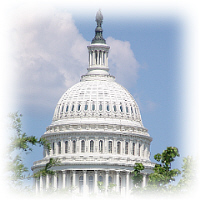Careers: Government

Description
A health physics career within the state or federal government can vary significantly in focus. You could become a regulator, a regulations developer, a homeland security expert, an emergency response expert, an inspector, or even an advisor to the President.
A health physicist plays a critical role in the portion of the government dedicated to public health and safety. Interactions are typically on a much more global scale than across an organization or two.
Requirements for Positions in a Government Setting1
Because these positions are so varied and staff is needed at all levels (administration, inspection, standard setting, national laboratory researcher, etc.), the requirements vary. Generally, minimum qualifications would be a BS in health physics or a similar science with preference given to those with an MS and American Board of Health Physics certification.
Average Annual Salary2
Example Agencies
- Centers for Disease Control and Prevention
- Nuclear Regulatory Commission
- Temporary Summer Student Program
- Co-Operative Education Program (Co-Op)
- Nuclear Regulator Apprenticeship Network (NRAN)
- Professionals: NRCareers (integrated with USAJOBS)
- Environmental Protection Agency
- Department of Homeland Security
1This is an example only. Some organizations may require graduate degrees.
2Increases by $27,000 per year with certification by the American Board of Health Physics.




